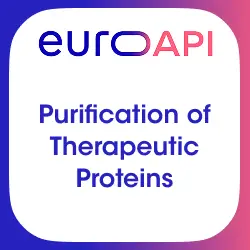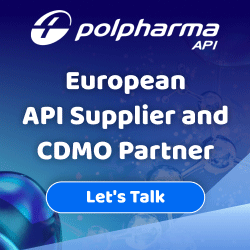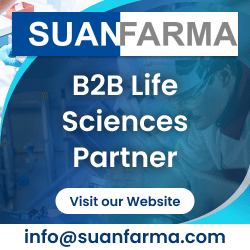Overview of service providers offering custom purification & separation technologies such as chromatography & HPLC for API contract manufacturing.
Q1. What is custom API purification?
Impurities arise during synthetic manufacturing of active pharmaceutical ingredients (APIs) in the form of organic impurities, inorganic impurities and residual solvents. If these impurities exceed their predetermined limits, they can have harmful and toxic effects on individuals and the environment.
Synthetic process impurities usually encompass starting materials, key intermediates, reagents, ligands, catalysts and by-products, whereas degradation process impurities include enantiomeric impurities which arise due to storage or stress conditions.
In processes that use a series of chemical reactions to synthesize APIs or complex APIs, the removal of reaction by-products, including the impurities listed above, is critical to produce high quality pharmaceuticals.
Separation and purification processes, in chemistry, refers to the separation of a drug substance into its respective components followed by the removal of impurities or purification. There are various applications of separation and purification technologies in fields such as medicines and manufacturing.
API separation and purification technologies are applied to remove unwanted by-products and residual products that arise during the API manufacturing and packaging processes. The preferred methods for separating and purifying APIs are chromatography, nanofiltration, ultrafiltration, distillation, etc.
Leading contract manufacturing organizations (CMOs) offer custom purification services for APIs, complex APIs, semi-synthetic APIs, fine chemicals, synthetic intermediates, synthetic peptides, isomers, natural products, etc. The scale of custom purification can range from milligrams to kilograms.
CMOs offer customized purification services to their clients depending upon their project specifications, which are determined beforehand. These specifications are dependent on preliminary tests and intensive verifications carried out at the beginning of a project.
A precise definition of requirement specifications and target specifications for the purified compounds, like amount and purity of the wanted substance or time scale, is therefore essential prior to undertaking separation and purification processes.
Q2. How does purification occur for synthetic active pharmaceutical ingredients (APIs)?
Common methods of purification for synthetic APIs or semi-synthetic APIs and other drug substances include crystallization, sublimation, distillation, chromatography, ultrafiltration, nanofiltration, etc. These API separation and purification processes are explored in detail below.
Methods of Purification for Synthetic APIs or Semi-Synthetic APIs:
1. Filtration
In filtration, a porous material or polymer membrane is used to separate particles of different sizes. If the pore sizes are highly uniform, separation can be fairly sensitive to the size of the particles, but the method is most commonly used to affect gross separations, as of liquids from suspended crystals or other solids.
2. Ultrafiltration
Ultrafiltration uses a permeable polymer membrane to separate macromolecules based on the pore size (5–20nm) and their molecular weight cut-off (1000–100,000Da) at low transmembrane pressures.
3. Nanofiltration
Like ultrafiltration, nanofiltration is based on size exclusion or particle capture and utilizes polymer membranes to separate particles. Nanofiltration (NF) rejects even smaller molecules than ultrafiltration, and has been used for water softening and removal of dissolved solids and viruses. The separation of molecules present in organic solvents by nanofiltration has great potential in industries ranging from refining to fine chemical and pharmaceutical synthesis.
4. Chromatography
Chromatography is based on the principle that molecules in complex mixtures applied onto the surface of or into a solid, and fluid stationary phase (stable phase) separate from each other while moving with the aid of a mobile phase.
For difficult separations where tiny amounts of impurities need to be removed, purification technologies primarily relies on chromatography systems in its various forms, with the most common being silica gel chromatography. Chromatographic systems are classified according to their stable phase and other types of chromatographic systems include alumina or reverse-phase chromatography.
5. High Performance Liquid Chromatography (HPLC)
High Performance Liquid Chromatography (HPLC) is a form of column chromatography that pumps a sample complex mixture or analyte in a solvent (known as the mobile phase) at high pressure through a column with chromatographic packing material (stationary phase). High Performance Liquid Chromatography (HPLC) is faster, has more surface area for interactions, and better impurity detection qualities as compared to conventional chromatographic systems.
6. Vacuum Distillation
During vacuum distillation, liquid contained in the processed material is vaporised under reduced pressure. This substance is extracted in the form of gas. It can then be re-liquefied, collected, recirculated, or processed with a scrubber or incinerator and then sent through the exhaust. Performing processes in a vacuum is faster and more energy efficient than conventional processes. At the same time, the product is not damaged due to high temperatures.
7. Fractional Distillation
Fractional distillation separates a complex mixture into a number of different parts, called fractions. Fractional distillation is usually used if the boiling point of liquids in a mixture are very close to each other, usually less than 40°C.
8. Crystallization
The applications of crystallization in the pharmaceutical industry as a purification and separation technology is used for the isolation and synthesis of pure active pharmaceutical ingredients (API), semi-synthetic APIs, co-crystals, etc.
Crystallization is completed in the following steps; (1) Impure substances are dissolved in water or suitable solvents, (2) the solution is then filtered and the filtrate is heated in a water bath, (3) the hot solution is then cooled, so that the crystals (organic substances) separate out, and finally (4) the crystals are removed via filtration and the impurities are passed onto the filtrate.
10. Sublimation
Sublimation and desublimation processes are applied to certain substances which tend to decompose or polymerize at temperatures above their melting point. It is a process by which a product is transferred from its solid state directly to its gaseous state by adding thermal energy, without passing through a liquid phase.
The reversal process is called de-sublimation. The most common application of sublimation and desublimation is the purification of active pharmaceutical ingredients (Purification of APIs) or drug substances. Sublimation is usually used to separate volatile organic compounds from non volatile impurities, as volatile APIs or complex APIs and drug substances sublimate on heating, whereas nonvolatile impurities don't.
Q3. Why is preparative chromatography a key technology for manufacturing and purifying APIs and intermediates?
The production of an API or key intermediate requires a robust and effective process, delivering a high purity pharmaceutical product. Depending on the nature of the process and the characteristics of the product, several techniques may be considered, including preparative chromatography.
Chromatography is a method for separating mixtures. In simple terms, the process involves dissolving a mixture in a fluid (mobile phase), which is then passed through another material (stationary phase). During this process, the constituents of the mixture travel at different speeds, resulting in the separation of components.
Chromatography may be preparative or analytical. The purpose of preparative chromatography is to separate the components of a mixture for further use (purification). Analytical chromatography is usually done with smaller amounts of material and is for measuring the relative proportions of analytes in a mixture.
Preparative chromatography is used in the pharmaceutical industry to purify molecules by cleaning them of their impurities. Preparative chromatography is today the best generic method for the purification of small drugs and valuable chemical components below 10 kg.
Preparative chromatography at scale is becoming increasingly important, even at the manufacturing scale, where a rapid and efficient separation coupled with low labor and overhead costs, can often times provide an economic advantage over a multistep asymmetric synthesis, especially in cases where classical or biocatalytic resolutions are not feasible. Therefore, preparative chromatography is often the method of choice for separating, purifying and isolating substances from complex mixtures.
Some preparative chromatography techniques used for purifying APIs & intermediates:
Planar Chromatography: Several preparative planar chromatographic techniques are available to the pharmaceutical industry. Some of these involve mobile phase migration through a stationary phase by capillary forces (classical preparative TLC) and some are forced-flow methods, such as centrifugal TLC and overpressured layer chromatography.
Special Column Chromatography: Conventional open-column chromatography is universally practised as a result of its simplicity of operation. Chromatography is based on the principle where molecules in mixture applied onto the surface or into the solid, and fluid stationary phase (stable phase) is separating from each other while moving with the aid of a mobile phase.
Alternatively, in the filtration mode, silica gel chromatography can be performed under overloaded conditions, this is referred to as special column chromatography.
Preparative Pressure Liquid Chromatography or HPLC: Preparative high-performance liquid chromatography (HPLC) has become a mainstay of natural product isolation and purification. The various modes available (e.g., normal-phase, reversed-phase, size exclusion, and ion-exchange) to date can be used to purify most classes of natural products.
In HPLC, column chromatography is performed at a higher flow rate, and therefore higher pressure, than classical column chromatography. This enables the use of smaller stationary phase beads with a greater surface area to volume ratio, which greatly increases the interaction of the stationary phase and components in the mobile phase.
Preparative Gas Chromatography: Preparative gas chromatography (prep-GC) has a rich and well-established history. This ranges from the use of GC as a bulk isolation method for compounds in mixtures that are well known, but simply cannot be otherwise separated from mixture components in large-scale amounts, to applications where much smaller quantities of compounds that require more substantial structure elucidation than available with classical GC detectors.
Countercurrent Chromatography: Countercurrent chromatography (CCC) is a type of liquid partition chromatography and has the distinct advantage of operation without the use of a solid support. Since no solid support is used, complications arising from the use of a solid support, such as adsorptive sample loss and denaturation, tailing of solute peaks, and contamination, can be avoided in CCC.
Q4. What is the importance of separation and purification in API and intermediate manufacturing?
Over the years the potency and importance of the pharmaceutical industry is hinged on the provision of high quality drugs and chemical substances that have medicinal effects. Greatly, the acceptability of drugs produced by the industry is dependent on the purity of the drug (amount of impurity) still present in the drug. Thus, different regulatory bodies have set specifications and guidelines on production and what amount of impurities is acceptable in a drug sample.
The International Council for Harmonisation of Technical Requirements for Pharmaceuticals for Human Use (ICH) is unique in bringing together regulatory authorities and the pharmaceutical industry to discuss scientific and technical aspects of pharmaceuticals and develop ICH guidelines.
Harmonisation achievements in the Quality area include pivotal milestones such as the conduct of stability studies, defining relevant thresholds for impurities testing and a more flexible approach to pharmaceutical quality based on Good Manufacturing Practice (GMP) risk management.
ICH’s guidelines for dealing with impurities (organic, inorganic and residual solvents) in active pharmaceutical drug substances defines which impurities must be identified or qualified and their acceptable limits. Separation and purification technologies as well as integrated purification and isolation technologies are required to ensure impurities don't exceed these predetermined limitations.
Importance of Separation:
In the production of chemical substances, especially pharmaceuticals, it is important to ensure that the products are pure and uncontaminated. Separation technologies are the methods used to remove one substance from a mixture containing any number of other substances, for harvesting or identification.
Separation technologies such as API filtration and chromatography are used to remove these toxic or wasteful components. In the production of APIs, key intermediates and other drug substances, separation is crucial for the removal of unwanted particles or impurities from the desired compounds.
Furthermore, separation can aid in the determination of size, weight and other physical property as well as chemical properties of a compound of interest. Separation techniques can also help in isolating desired active constituents from substances.
Purity is determined in the following ways:
(1) Physical comparison with a certified pure sample.
(2) Assessing the physical properties like melting and boiling point because impurities tend to change those properties.
(3) The colorimetric method which is using another chemical to see how it will react in terms of changing color or smell.
(4) Analytical methods such as gravimetry and titration to test not only the presence but also the number of impurities available.
Importance of Purification:
While modest impurities in small sample sizes may not mean much, there can be a big catastrophe when the same technique is used to manufacture big quantities. Smaller quantities of impurities may agglomerate in large scale production and surpass their accepted quantity threshold.
This can be an issue as the presence of impurities, above its limit, can completely alter a formulation and because different chemicals react differently. If an active pharmaceutical ingredient (API) contains impurities, a company may lose billions of dollars trying to formulate a drug with no success.
To avoid such issues, it is necessary to perform all the investigations on appropriate reference standards of drugs and impurities to get meaningful specifications. Purity assessment is particularly critical in discovery programs and whenever chemistry is linked with biological and/or therapeutic outcomes.
GMP API manufacturing is achieved when all the steps outlined above are strictly followed and regulated. In the pharmaceutical industry ensuring the safety and efficacy of drugs is of paramount importance. Purification thus yields compounds of the safest and highest standards which makes it crucial to pharmaceutical drug development.
Q5. What are the latest technological developments used in API purification?
While single use technologies had limited applications a few years ago, these days, disposable components are becoming a more common feature of facility design from upstream to downstream processing. Single-use components reduce the risk of contamination, and can be less expensive, easier to use and provide more flexibility than traditional integrated purification and isolation technologies.
Today, these single-use purification and isolation technologies have been adopted across the upstream manufacturing process, downstream purification process, and through the fill-finish of entire classes of biologic drugs. Single-use technologies supply a number of values to any mode of bioprocessing, and can provide specific and enabling features to continuous bioprocessing implementations.
Single-use purification and isolation technologies for purification of active pharmaceutical ingredients (Purification of APIs) include tubing, capsule filters, ion exchange membrane chromatography devices, mixers, bioreactors, product holding sterile bags in place of stainless steel vessels (sterile fluid containment bags), connection devices and sampling receptacles.
Single-use systems provide significant advantage over traditional stainless-steel systems for downstream processing. Some examples are API filtration and purification systems, buffer preparation systems, and sampling/dispensing systems. Key advantages of using single-use systems are speed of implementation, which is crucial for high-impact new product launches, and increased operational efficiency related to a reduction in the resources required for cleaning and setup.
Some other advantages of Single-use technologies:
- More flexibility
- Less up-front capital investment
- No batch-to-batch cross contamination
- No reuse cleaning validation
- Less work on scale up
- Accelerated time to market
Furthermore, over the last 25 years significant evolution and breakthrough in bioprocess technologies have been achieved, including the many emerging innovative solutions for downstream purification, noted below.
- Improved chromatography sorbents, with increased selectivity and binding capacity.
- Improved affinity ligands for specific target capturing and purification.
- Availability of sterilized & continuous chromatographic systems
- Advanced high performance liquid chromatography (HPLC) systems
- High pressure protein refolding
- High throughput analytical tools to support high throughput process development
Q6. Which are some of the leading contract manufacturers (CMOs) offering services for API purification?
There are numerous CMOs and CDMOs offering custom purification, integrated purification and isolation technologies for APIs, complex APIs, intermediates, and other drug substances. Some of the leading contract service providers offering API separation and purification are listed below.
SANOFI Active Ingredient Solutions
Sanofi Active Ingredient Solutions cover both APIs sales and contract development and manufacturing. They provide expertise in quality, regulatory and supply and have dedicated commercial teams for customers around the globe.
SAIS is a therapeutic protein extraction and isolation service expert for custom purification & analysis of sophisticated proteins from natural origin raw materials. Their services include protein extraction & isolation, and their biotechnological application capabilities include the production, extraction and custom purification of APIs (purification of active pharmaceutical ingredients) & therapeutic proteins.
Bioindustria L.I.M. Spa
Bioindustria was founded in 1932, its activities include production of large volume i.v. solutions, API filtration and purification, production of generic drug products, and manufacturing and marketing of bulk active ingredients for the pharmaceutical industry.
Bioindustria L.I.M. is highly competitive in the field of active pharmaceutical ingredient (API ) custom synthesis and process development requiring high technology processes. Bioindustria offers equipment such as centrifuges, nutsche filters, rotating dryers, static dryers, micronization, and mills.
ScinoPharm Taiwan, Ltd
ScinoPharm Taiwan is a leading process R&D and API manufacturing service provider for the global pharmaceutical industry. With cGMP production facilities, ScinoPharm offers a wide portfolio of services ranging from custom synthesis & process development for early phase pharmaceutical activities for branded companies as well as APIs for the generic industry.
ScinoPharm's 16 units have their own dedicated API filtration and purification, drying, milling, and packaging facilities. Several multiple-use drying and finishing units are available to reduce intermediate bottlenecks and they have been validated for API/cGMP operations.
ZACH System SA
Zach System is a fine chemicals company dedicated not only to providing its customers with fast, cost-effective quality custom synthesis services, APIs and key intermediates but also to supporting them with extensive process development expertise.
Zach has over 30 years of experience in multi-step syntheses involving complex reactions. They have dedicated R&D and analytical development teams on their site, and state-of-the art analytical equipment such as filtration technologies for API separation and purification. Zach has special equipment like spray-dryers, bulk freeze-dryer, micronization, wiped film evaporator, nanofiltration, ultrafiltration, etc.
All Suppliers












 Zach System is committed to providing Highly Customized Solutions for all your Development Programs.
Zach System is committed to providing Highly Customized Solutions for all your Development Programs.










